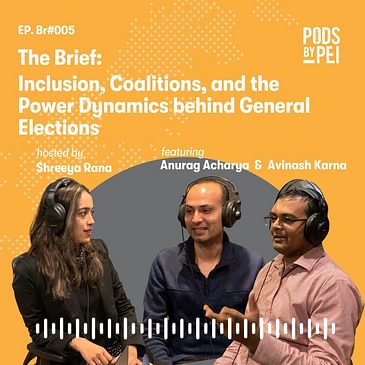Ep. Br#005
PEI, in collaboration with SoAS, University of London, has been undertaking a research project that examines how federalism is being operationalized in Nepal. As part of this research, PEI followed the municipal elections held earlier this year in May and produced an election brief highlighting the concerns regarding candidacy selection by political parties and its implications on the potential representation of women and marginalized groups. The brief also pointed out the discontent among local leaders who had lost out on the candidacy, resorting to intra-party feud and violence and defections to rival parties.
In this Episode of The Brief, PEI’s Shreeya Rana discusses with Anurag Acharya and Avinash Karna the key trends that we have observed in the run-up to the upcoming general elections. These observations are based on PEI’s ongoing sub-national research on federalism in Nepal, done in collaboration with SOAS University of London. The research tracks issues of inclusion and representation, the nature of political alliances, the nexus of business and politics, and how this warrants a more vigilant role of the election commission.
With Nepal all set for the November 20, 2022, general elections where more than 17.9 million registered voters will directly elect 165 members to the House of Representatives under the first-past-the-post system, while another 110 members will be elected through a proportional representation (PR) system. Anurag is PEI’s Director of Practice, with a background in international relations and journalism. He is a well-known political commentator and has written extensively on Nepal and South Asia for national and international publications. Avinash is PEI’s coordinator of subnational programs. He has a decade-long experience working in the areas of peacebuilding and governance.




